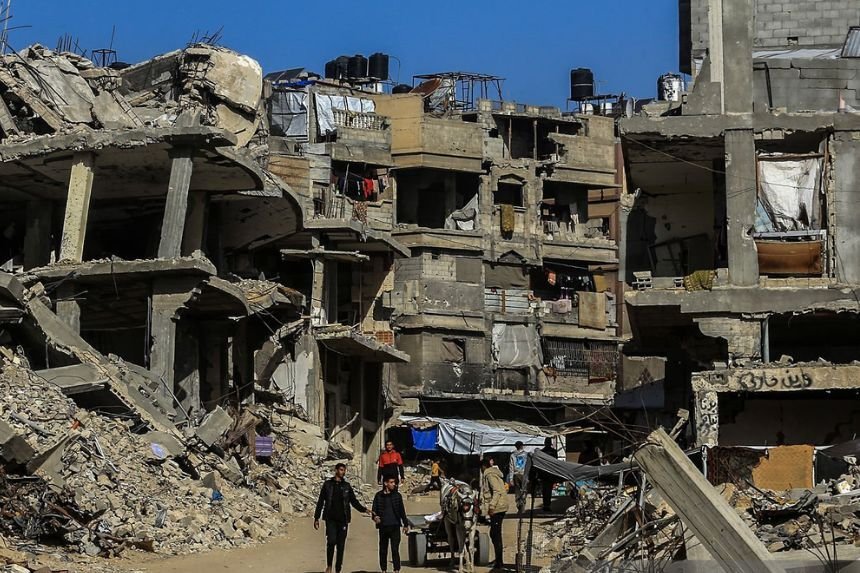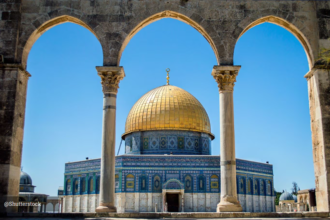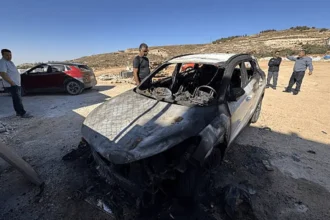After 13 months of intense conflict between Israel and Hezbollah, a ceasefire brokered by the United States and France has been announced, marking a significant step towards stabilizing the volatile region. The agreement, unveiled by U.S. President Joe Biden, aims to permanently end hostilities while securing Israel from Hezbollah’s military threats and reasserting Lebanese sovereignty over its southern territories.
Ceasefire Overview
Under the terms of the agreement, Hezbollah has committed to removing its fighters and weaponry from the area between the Blue Line—the unofficial Israel-Lebanon border—and the Litani River, approximately 30 kilometers to the north. Over a 60-day implementation period, the Lebanese Armed Forces (LAF) will deploy 5,000 troops to replace Hezbollah’s presence, tasked with maintaining security and ensuring no reestablishment of militant infrastructure.
Gaza Ceasefire Talks: Key Challenges and Progress Updates
In parallel, Israel will gradually withdraw its forces and civilian settlements from Lebanese territory. This mutual step is designed to allow displaced residents from both nations to return to their homes safely.
President Biden emphasized that the ceasefire is intended to be permanent, stating, “This agreement lays the foundation for lasting peace and mutual security for both nations.”
What are the Challenges to Implementation
Despite the optimism, significant hurdles remain. The Lebanese army has expressed concerns about its limited resources, including funding, manpower, and equipment, to fully enforce the ceasefire. International allies, including the U.S. and France, are expected to step in with military and logistical support to bolster the LAF’s capabilities.
Sectarian tensions in Lebanon also pose risks, as Hezbollah’s influence is deeply entrenched in parts of the country. Analysts question whether the LAF would be willing—or able—to confront Hezbollah in the event of violations, potentially reigniting conflict.
What is Hezbollah’s Weakened Position like?
Western officials believe Hezbollah’s recent losses make this an opportune moment for the Lebanese government to reassert control. The militia has fired thousands of rockets, missiles, and drones into Israel during the conflict, leading to devastating retaliatory strikes. Southern Lebanon has suffered widespread destruction, with entire neighborhoods reduced to rubble.
However, Hezbollah remains a powerful political and military force, and its reaction to the ceasefire will be closely watched.
Who is Monitoring and managing Enforcement?
The agreement draws heavily from UN Security Council Resolution 1701, which ended the 2006 Israel-Hezbollah war. The resolution stipulated that areas south of the Litani River should remain free of armed groups apart from the Lebanese state and the UN peacekeeping force (UNIFIL).
A key addition to the current deal is the inclusion of the U.S. and France in the monitoring mechanism alongside UNIFIL, Lebanon, and Israel. This expanded oversight aims to ensure compliance and address longstanding grievances from both sides about violations of Resolution 1701.
“There will be no U.S. combat troops in the area,” a senior U.S. official clarified. “Instead, we will provide military support to the Lebanese Armed Forces, working in coordination with French military forces.”
What is Israel’s Stance and Right to Respond?
Israeli Prime Minister Benjamin Netanyahu welcomed the deal but underscored Israel’s right to defend itself against potential violations. He stated, “If Hezbollah violates the agreement, whether by launching rockets, digging tunnels, or rebuilding terrorist infrastructure, we will respond decisively.”
While Israel’s demand for explicit rights to retaliate was not included in the formal agreement due to Lebanese objections, U.S. media reports suggest that a letter from the Biden administration affirms Israel’s right to act in self-defense.
President Biden backed this position, adding, “If Hezbollah or anyone else breaks the deal and poses a direct threat to Israel, Israel retains the right to self-defense consistent with international law.”
Human Impact and Rebuilding Efforts
The ceasefire has brought a glimmer of hope to war-torn communities on both sides of the border. Southern Lebanon and northern Israel have borne the brunt of the conflict, with thousands displaced and civilian infrastructure devastated.
Images from Beirut’s southern suburbs show the harrowing aftermath of airstrikes: collapsed buildings, twisted metal, and debris littering the streets. Meanwhile, Israeli towns like Petah Tikva have endured relentless rocket attacks, leaving residents on edge.
Rebuilding these communities will require substantial international assistance. For Lebanon, where economic instability and political paralysis have deepened, the task is particularly daunting.
What are the Geopolitical Implications?
The ceasefire marks a rare moment of collaboration between the U.S., France, Israel, and Lebanon, with potential ripple effects for the region. It highlights shifting dynamics in the Middle East, where Western powers aim to curb Iranian influence, represented by Hezbollah, while supporting stability in Lebanon.
However, the deal’s long-term success depends on sustained commitment from all parties. Violations, whether from Hezbollah’s rearmament or Israeli military actions, could quickly unravel the fragile peace.
Will it ever stop?
As the ceasefire takes effect, hope mingles with uncertainty. The deal represents a significant diplomatic achievement, but its implementation faces numerous challenges. For now, the people of Israel and Lebanon can begin to imagine a future beyond the shadow of war—a fragile but vital first step towards lasting peace.








